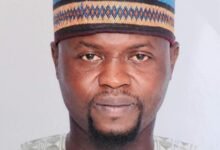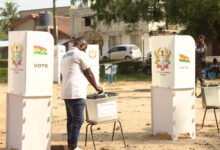Another Special prosecutor (Part 3)
“What happened during the tenure of the first Special Prosecutor is now history but critical lessons for the nation.” This was how I ended my discussion last week. Martin Amidu took office at a time when the nation was bedeviled with many and high-level corruption perceived cases.
The prayer and hope of the Ghanaian were that this man who before now had distinguished himself as a stalwart corruption campaigner would do something to bring corruption cases in the country to their barest minimum.
Woefully, surprisingly and in a very disappointed manner, he put in his resignation to truncate the hopes the President and the entire nation has vested in him.
All that astonishingly came up on Monday, 16th November 2020, was the resignation of the much-hailed and trusted one to lead the daunting task of corruption fight in the land of Ghana. He dramatically announced this in the media with a letter of resignation to the President of the earth.
This was against the backdrop of perhaps the loudest announcement he ever made on the conclusions and observations on the analysis of the risk of corruption and anti-corruption assessment on the Report On Agyapa Royalties Limited Transactions and the Airbus Scandal.
Ironically his reasons for resigning are based on some of these, among others. “The reaction I received for daring to produce the Agyapa Royalties Limited Transactions anti-corruption report convinces me beyond any reasonable doubt that I was not intended to exercise any independence as the Special Prosecutor in the prevention, investigation, prosecution, and recovery of assets of corruption. My position as the Special Prosecutor has consequently become untenable,” he said in a release explaining his resignation.”
He was unable to establish the office with the full complement of human and resources and logistics. No case was heard. Yet to read of a report on any investigation conducted.
The President has done his bit by going through the procedure to get the right thing to be done and deserves all the applauds, but Mr. Amidu’s resignation does not bring to an end our flight of corruption as a country.
It is believed that the office has come to stay, and Ghanaians in the future would not realize that it is dormant, not ineffective as a result of lack of resources as some Ghanaian institutions.
Personnel of the office, be it investigators, administrators, prosecutors though not permanent, must also come with clean hands and live above reproach. We expect them to be genuinely Ghanaians who have a love of the nation above all other aspirations.
The position became vacant and this was how an international media couched it “The Ghanaian government is hoping to invigorate its fight against official corruption by pushing forward a new candidate for the 3-year-old Office of the Special Prosecutor after the unexpected resignation of the office’s first Special Prosecutor in November 2020 — Kissi Agyebeng.”
He was nominated by the Attorney General, approved by the President and vetted by Parliament as per the law. Mr. Kissi Agyebeng was sworn into office to help one of the nation’s fiercest fights, corruption
Mr. Agyebeng has been a law lecturer at the Faculty of Law of the University of Ghana Legon since October 2006, teaching and researching Criminal Law, International Humanitarian Law, International Law, Corporate Law, and Legal Research and Writing. Called to the Bar in October 2003 and also engaged in private law practice.
He holds a Bachelor of Laws (LLB) degree from the University of Ghana and a Master of Laws (LLM) degree from Dalhouse University and Cornell Law School.
The new Special Prosecutor was awarded the Bentsi-Enchill prize for Best Graduating Student of the University of Ghana School of Law in 2001 and E.N. Sowah Memorial prize for best student in Family Law at the Ghana School of Law and has participated in several international arbitration hearings.
He has also consulted for public sector institutions, including the Attorney General’s Department, Exim Bank Ghana Ltd., Youth Employment Authority, National Lottery Authority, Ghana National Petroleum Corporation, Trade Fair Company Limited, and the Ghana Olympic Committee.
The 43-year-old Lawyer Kissi is also an Associate at the African Centre for Cyber Law and Cyber Crime Prevention, and the National Moot Court Co-ordinator for the Commonwealth Moot Court Competition on International Criminal Justice and also the Vice-Chairperson of the Appeals Committee of the Ghana Football Association.
A Managing Partner of Cromwell Gray LLP, a reputable law firm in Accra, the legal practitioner is the Chairman of the Electronic Communications Tribunal taking over from Justice Samuel Kofi Date-Bah who resigned from the Tribunal on July 1, 2019.
He has argued numerous cases before the Superior Court of Ghana and has also been engaged in several international business transactions in addition to overseeing the affairs and adjudication of appeals at the Electronic Communications Tribunal as stipulated in the Tribunal’s Act 775 of 2008.
Very astute and professional by all standards but the fact remains that, this country like many other African countries has very little, if any, to show by way of successfully fighting corruption. This failure emanates from our collective inability to ensure the proper establishment of law enforcement agencies and commissions with adequate resources and independence to execute their mandate without political interference.
It has also to chiefly due to the very negative practice of placing emotions first and not principles. Every offender in this county knows some bigwig in society who exerts undue influence on law enforcement agencies to clear him or her from wrongdoings. To positively address this, the urgent need for Government to adequately resource and guarantee the independence of law enforcement from politics will help us, as a nation, to achieve some lasting success in this fight against corruption.
These and other many factors and challenges, as well as culture, are what the new Special Prosecutor has been sworn into office to inherit and unless there is a change of attitude in practice the Office of the Special Prosecutor Act would soon be seen by the public to be, like its predecessors, a delusion and rather than an achievement-oriented Office.
The fact that the President of the Republic of Ghana sincerely intends it to be a real signature achievement of his tenure of office is beyond doubt to me. The reality, however, appears to be that his intentions are not congruent with those of his subordinates who have to help him achieve those objectives. We must focus whatever I am saying to this conference on the role of the Special Prosecutor in the protection of national resources within the context of this historical preamble so that it is not said that when the Office had an opportunity to speak to such an august forum it was less than candid.
“The role of the Office of the Special Prosecutor can better be understood in the historical context of the factors, and the forces that gave rise to the establishment of the Office, almost sixty-four years after Ghana attained her independence and later became a Republic.” Without being fair and particularly bold, nothing meaningful could be achieved.
“Anyone occupying the office of the Special Prosecutor must be bold enough to take a strong stance against government interference in their work or risk failure.”
We must win this time. Congratulations Mr. Agyabeng
Nana Sifa Twum



